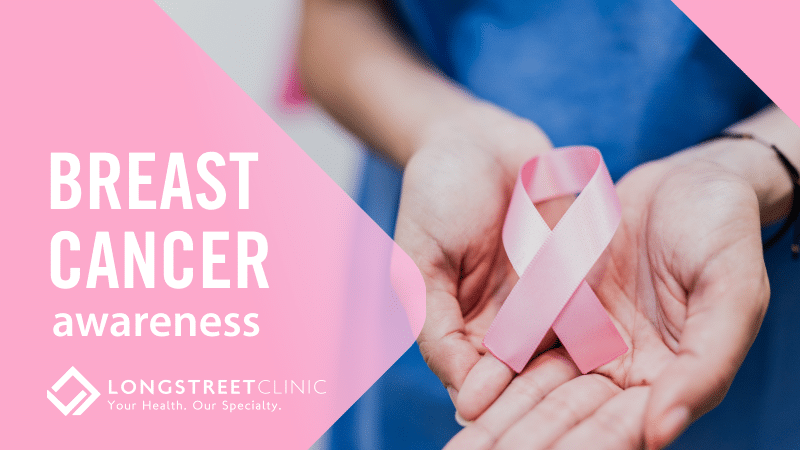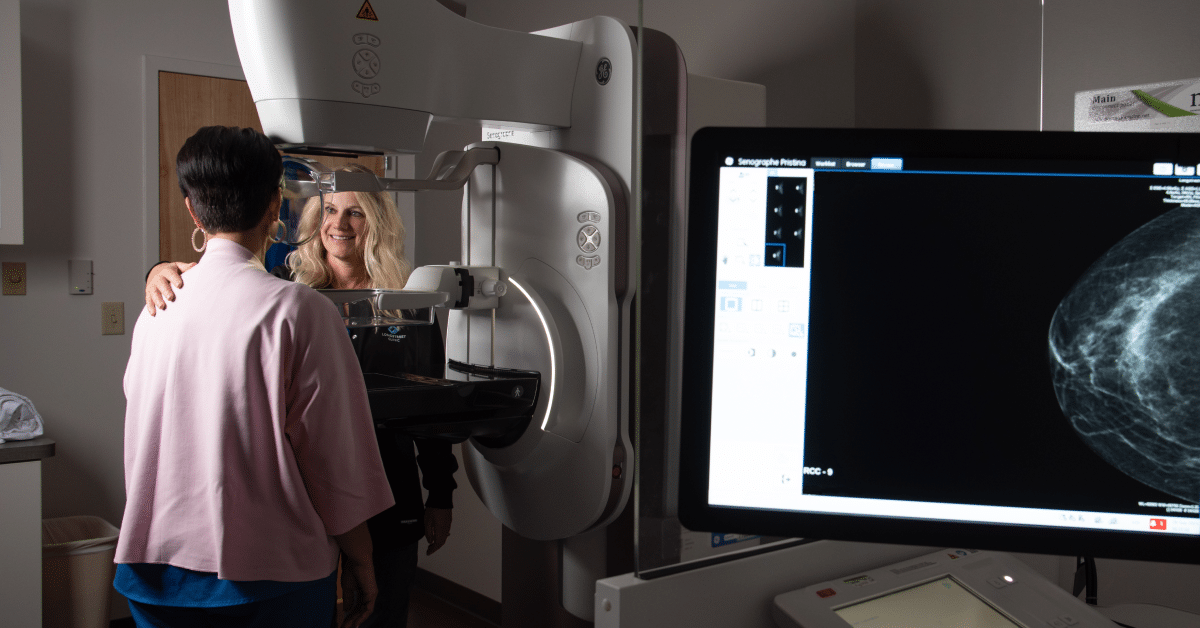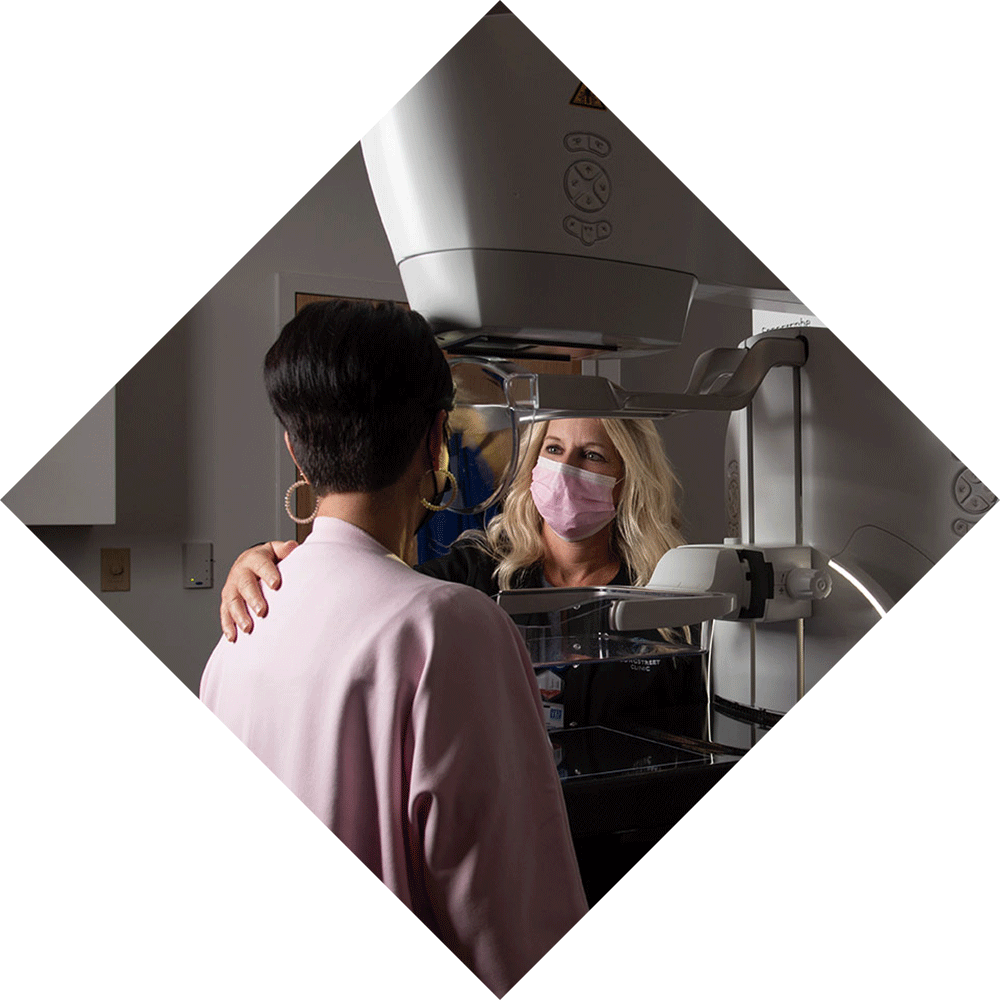Our breast cancer risk assessment is a tool used by our Breast Center when a patient arrives for their mammogram. The Tyrer-Cuzick (TC) model*, also referred to as the IBIS Breast Cancer Risk Evaluation tool, incorporates a quick questionnaire that helps us calculate a person’s likelihood of carrying the BRCA1 or BRCA2 mutations. It also estimates the likelihood of a woman developing breast cancer in 10 years as well as over the course of her lifetime.
The tool estimates breast cancer risk based on risk factors including:
- Age
- Body mass index
- Age at onset of menstruation
- Obstetric history
- Age at menopause (if applicable)
- History of a benign breast condition that increases breast cancer risk (hyperplasia, atypical hyperplasia, LCIS)
- History of ovarian cancer
- Use of hormone replacement therapy
- Family history (including breast and ovarian cancer, Ashkenazi inheritance, genetic testing if done)
This information, coupled with additional data to help determine a patient’s risk level based on family history as well as overall breast health, aid in the decision making process about closer diagnostic and preventative care planning.
We inform our patient’s of the results and what it may mean to their overall care planning which could include recommending additional imaging studies and genetic counseling or testing.
Scoring and Next Steps
At the Longstreet Clinic Breast Center, we will score the individual using three categories and suggest next steps based on that score.
Average Risk: If the person scores below 15% on the Tyrer-Cuziack, they will receive a letter in the mail explaining their score and any recommendations, including genetic counseling.
Intermediate Risk: If the patient scores between 15% and 19%, the radiologist or provider may recommend additional imaging studies, including Automated Breast Ultrasound (ABUS), Breast MRI among others. Genetic counseling is advised.
High Risk: If the individual scores 20% or higher, a patient care coordinator will discuss the results with her before she leaves, as well as o er to schedule an appointment with our dedicated breast program nurse practitioner to review next steps.
Scoring is noted in our IT/Health Record platform, EPIC, as well as input into PACS imaging so our radiologists can note the score on the nal report.
*A comparison study of breast cancer risk models concluded that this TC screening model is the most consistently accurate when it comes to estimating risk.
For more information, call us at 770-533-4700!




